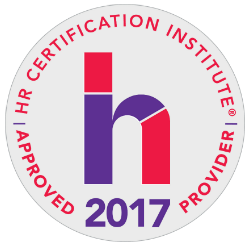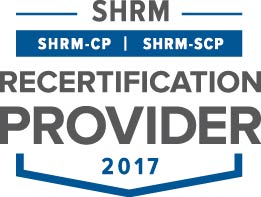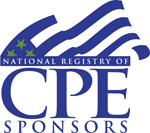|
24May |
EVENT DATEThursday, May 24, 2018 |

|
PRESENTER(s)SkillEducators |

|
Any TimeDuration : 300 Minutes |
 |
Approved for 5.0 RCH through HRCI. |  |
Approved for 5.0 PDC through SHRM. |  |
Approved for 6.0 CPE through NASBA. |
Event Material
Training Description
This webinar concentrates on five areas of Wage and Hour law: Paying Exempt Employees, Calculating gross wages under the FLSA, Deducting from an employee’s wages, The nuts and bolts of physically paying employees and Changing payroll frequencies .
Paying employees in compliance with federal and state wage and hour laws doesn’t just happen. It takes knowledge, planning and careful execution. How the employer does this is being watched very closely. The Department of Labor takes their investigations of Wage and Hour violations seriously…very seriously! For minimum wage and overtime violations, in FY2015 alone, the agency collected in excess of $246 million! But those aren’t the only violations they audited for.
Not paying the proper salary level or making improper deductions from an exempt employee will trigger an audit as well. And the DOL is certainly not the only ones auditing. On the state level, the employer can be found in violation of wage and hour rules ranging from paying an employee too late to using the wrong method of payment.
But it isn’t just making a mistake on the gross wages that can get an employer into trouble with wage and hour law. Failure to make deductions correctly, failure to pay terminated employees on time and even failure to include vacation time when an employee terminates are all areas that can lead to wage and hour fines. Then what happens if the company decides to change everything up and use a different payroll frequency—maybe weekly to biweekly or semimonthly. What does payroll do then to stay in compliance?
By knowing and understanding Wage and Hour requirements, you can help protect your company from what could be a major financial calamity. This includes not only how to do the basic math of calculating overtime (using the required FLSA method) but what hours must be paid for, what payment methods are legal in which states, how soon to pay an employee after closing out the timecard, and making sure exempt employees are paid on a “salary basis”.
By the end of this webinar the attendee will have:
- Gained knowledge of and skills in federal and applicable state wage and hour law as it pertains to payroll preparation
- An understanding of the proper calculation of gross pay
- And understand of the proper calculation of overtime pay
- A sound knowledge of the terminology used by the FLSA as it pertains to calculating overtime and hours worked
- Basic understanding what is considered hours worked
- Gained knowledge of when an employee must be given a lunch and when an employer may dock for meal periods
- Knowledge of the requirements for paying employees including pay frequencies permitted and methods allowed under state laws
- Gained knowledge in paying exempt employees properly
- The basic understanding of what must be included on a paystub
- A basic understanding of what is required when changing a payroll frequency
Webinar Agenda:
- Session One: Paying Exempt Employees
- Session Two: Wage and Hour Compliance—Its Overtime and Much More!
- Session Three: Deducting from an Employee’s Paycheck
- Session Four: The Nuts and Bolts of Physically Paying an Employee
- Session Five: Changing Payroll Frequencies
| Training Format |
Industry |










